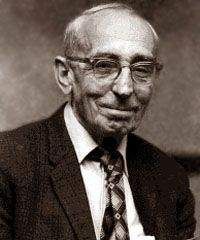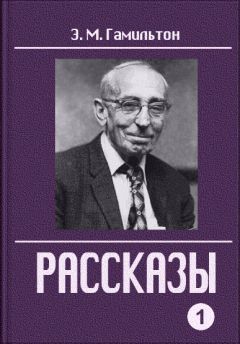Пользователь - o 3b3e7475144cf77c
toward the guard who had entered the van and taken his seat by the door. Evidently
"Sprechen verboten" was still the rule.
But some men have keen wits, and do not hand them over when they enter a jail. The little Jew
laid his hand on Lanny's where it rested on the seat between them. He gave a sharp tap with
his finger, and at the same time, turning his head toward Lanny and from the guard, he
opened his mouth and whispered softly: "Ah!" just as if he were beginning a singing lesson, or
having his throat examined for follicular tonsillitis. Then he gave two quick taps, and whispered:
"Bay!" which is the second letter of the German alphabet. Then three taps: "Tsay!"— the third
letter; and so on, until the other nodded his head. Lanny had heard tapping in his dungeon,
but hadn't been sure whether it was the water-pipes or some code which he didn't know.
This was the simplest of codes, and the Jew proceeded to tap eighteen times, and then waited
until Lanny had calculated that this was the letter R. Thus slowly and carefully, he spelled
out the name "R-O-E-H-M." Lanny assumed that the little man was giving his own name, and
was prepared to tap "B-U-D-D," and be glad that it was short. But no, his new friend was
going on; Lanny counted through letter after letter: "E-R-S-C-H-O-S-." By that time the
little Jew must have felt Lanny's hand come alive beneath his gentle taps, and realized that
Lanny had got his meaning. But he finished the word to make sure. It took twice as long as it
would have taken in English: "Rohm shot!"
XI
That simple statement bore a tremendous weight of meaning for Lanny. It enabled him to
begin choosing among the variety of tales which he had constructed for himself in the past three
days and four nights. If Ernst Rohm, Chief of Staff of the Sturmabteilung, had been shot, it
must mean that the much-talked-of "Second Revolution" had failed. And especially when the
tapping continued, and Lanny counted out, letter by letter, the words "in Stadelheim." That
was a flash of lightning on a black night; it told Lanny what all the shooting had been about.
The S.A. Chief of Staff and his many lieutenants who had been gathered for a conference! They
must have been seized, carried from Wiessee, and shot somewhere in the grim old prison! The
quick finger tapped on, and spelled the name of Heines, followed again by the dread word
"erschossen." Lanny knew that this was the police chief of Breslau, who had led the gang which
had burned the Reichstag; he was one of the most notorious of the Nazi killers, and Hugo had
named him as one of Rohm's fellow-perverts, and a guest at the Wiessee villa.
And then the name of Strasser! Lanny put his hand on top of the little Jew's and spelled the
name "Otto"; but the other wiggled away and spelled "Gr—" so Lanny understood that it was
Gregor Strasser, whom he had heard getting a tongue-lashing from the Führer, and whom he
and Irma had heard speaking at a Versammlung in Stuttgart. Otto Strasser was the founder of
the hated "Black Front," and was an exile with a price on his head; but his elder brother
Gregor had retired from politics and become director of a chemical works. Lanny had been
surprised when Hugo had mentioned him as having had conferences with Rohm.
The little Jewish intellectual was having a delightful time breaking the rules and gossiping
with a fellow-prisoner, telling him the meaning of the terrific events of the past three days.
Even into a prison, news penetrates and is spread; and never in modern times had there been
news such as this! The eager finger tapped the name of Schleicher; the one-time Chancellor, the
self-styled "social general" who had tried so hard to keep Hitler out of power; who had
thwarted von Papen, and then been thwarted in turn. Of late he had been dickering with the
malcontents, hankering to taste the sweets of power again. "Schleicher erschossen!" A high
officer of the Reichswehr, a leading Junker, one of the sacred ruling caste! Lanny looked at the
face of the stoutish gentleman across the aisle, and understood why his eyes were wide and
frightened. Could he see the little Jew's finger resting on Lanny's hand, and was he perhaps
counting the taps? Or was he just horrified to be alive in such a world?
Lanny had heard enough names, and began tapping vigorously in his turn. "Wohin gehen
wir?" The answer was: "Munich Police Prison." When he asked: "What for?" the little Jew
didn't have to do any tapping. He just shrugged his shoulders and spread his two hands, the
Jewish way of saying in all languages: "Who knows?"
28
Bloody Instructions
I
IN THE city jail of Munich Lanny was treated like anybody else; which was a great relief to
him. He was duly "booked": his name, age, nationality, residence, and occupation—he gave the
latter as Kunstsachverständiger, which puzzled the man at the desk, as if he didn't get many of
that kind; with a four days' growth of brown beard Lanny looked more like a bandit, or felt
that he did. He was, it appeared, under "protective arrest"; there was grave danger that
somebody might hurt him, so the kindly Gestapo was guarding him from danger. By this device
a Führer with a "legality complex" was holding a hundred thousand men and women in
confinement without trial or charge. The American demanded to be allowed to notify his
consul, and was told he might make that request of the "inspector"; but he wasn't told when
or how he was to see that personage. Instead he was taken to be fingerprinted, and then to be
photographed.
All things are relative; after a "black cell" in Stadelheim, this city jail in the Ettstrasse seemed
homelike and friendly, echt suddeutsch-gemütlich. In the first place, he was put in a cell with
two other men, and never had human companionship been so welcome to Lanny Budd. In the
next place, the cell had a window, and while it was caked with dust, it was permitted to be
open at times, and for several hours the sun came through the bars. Furthermore, Lanny's
money had been credited to his account, and he could order food; for sixty pfennigs, about
fifteen cents, he could have a plate of cold meat and cheese; for forty pfennigs he could have a
shave by the prison barber. For half an hour in the morning while his cell was being cleaned he
was permitted to walk up and down in the corridor, and for an hour at midday he was taken
out into the exercise court and allowed to tramp round and round in a large circle, while from
the windows of the four-story building other inmates looked down upon him. Truly a
gemütlich place of confinement!
One of his cell-mates was the large business man who had been his fellow-passenger in the
Grüne Minna. It turned out that he was the director of a manufacturing concern, accused of
having violated some regulation regarding the payment of his employees; the real reason, he
declared, was that he had discharged an incompetent and dishonest Nazi, and now they were
going to force him out and put that Nazi in charge. He would stay in prison until he had made
up his mind to sign certain papers which had been put before him. The other victim was a
Hungarian count, who was a sort of Nazi, but not the right sort, and he, too, had made a
personal enemy, in this case his mistress. Lanny was astonished to find how large a percentage of
prisoners in this place were or thought they were loyal followers of the Führer. Apparently all
you had to do in order to get yourself into jail was to have a quarrel with someone who had
more influence than yourself, then you would be accused of any sort of offense, and you stayed
because in Naziland to be accused or even suspected was worse than being convicted.
Lanny discovered that having been in a "black cell" of Stadelheim for three days and four nights
had made him something of a distinguished person, a sort of Edmond Dantes, Count of Monte
Cristo. His cell-mates fell upon him and plied him with questions about what he had seen and
heard in those dreadful underground dungeons. Apparently they knew all about the killings;
they could even tell him about the courtyard with a wall against which the shooting was done,
and the hydrant for washing away the blood. Lanny could add nothing except the story of
how he had lain and listened; how many drum-rolls and volleys he had heard, and about the
man who had argued and protested, and Lanny's own frightful sensations. It was a relief to
describe them, he found; his Anglo-Saxon reticence broke down in these close quarters, where
human companionship was all that anybody had, and he must furnish his share of
entertainment if he expected others to furnish it to him.
II
Newspapers had been forbidden in the prison during this crisis; but you could get all sorts of
things if you had the price, and the Hungarian had managed to secure the Münchner Zeitung
of Monday. He permitted Lanny to have a look at it, standing against the wall alongside the
door, so as to be out of sight of any warder who might happen to peer through the square
opening in the door; if he started to unlock the door Lanny would hear him and slip the paper
under the mattress or stuff it into his trousers. Under these romantic circumstances he read
the flaming headlines of a radio talk in which his friend Joseph Goebbels had told the German
people the story of that dreadful Saturday of blood and terror. Juppchen had been traveling
about the Rheinland with the Führer, dutifully inspecting labor-camps, and he now went into
details, in that spirit of melodrama combined with religious adoration which it was his job to
instill into the German people. Said crooked little Juppchen:
"I still see the picture of our Führer standing at midnight on Friday evening on the terrace of
the Rhein Hotel in Godesberg and in the open square a band of the Western German Labor
Service playing. The Führer looks seriously and meditatively into the dark sky that has
followed a refreshing thunderstorm. With raised hand he returns the enthusiastic greetings of
the people of the Rheinland . . . In this hour he is more than ever admired by us. Not a quiver
in his face reveals the slightest sign of what is going on within him. Yet we few people who stand
by him in all difficult hours know how deeply he is grieved and also how determined to deal
mercilessly in stamping out the reactionary rebels who are trying to plunge the country into
chaos, and breaking their oath of loyalty to him under the slogan of carrying out a 'Second
Revolution.'"
Dispatches come from Berlin and Munich which convince the Führer that it is necessary to
act instantly; he telephones orders for the putting down of the rebels, and so: "Half an hour
later a heavy tri-motored Junkers plane leaves the aviation field near Bonn and disappears into
the foggy night. The clock has just struck two. The Führer sits silently in the front seat of the
cabin and gazes fixedly into the great expanse of darkness."
Arriving in Munich at four in the morning they find that the traitorous leaders have already
been apprehended. "In two brisk sentences of indignation and contempt Herr Hitler throws
their whole shame into their fearful and perplexed faces. He then steps to one of them and rips
the insignia of rank from his uniform. A very hard but deserved fate awaits them in the
afternoon."
The center of the conspiracy is known to be in the mountains, and so a troop of loyal S.S.
men have been assembled, and, narrates Dr. Juppchen, "at a terrific rate the trip to Wiessee is
begun." He gives a thrilling account of the wild night ride, by which, at six in the morning
"without any resistance we are able to enter the house and surprise the conspirators, who are
still sleeping, and we arouse them immediately. The Führer himself makes the arrest with a
courage that has no equal . . . I may be spared a description of the disgusting scene that lay
before us. A simple S.S. man, with an air of indignation, expresses our thoughts, saying: 'I only
wish that the walls would fall down now, so that the whole German people could be a
witness to this act.'"
The radio orator went on to tell what had been happening in Berlin. "Our party comrade,
General Göring, has not hesitated. With a firm hand he has cleared up a nest of reactionaries and
their incorrigible supporters. He has taken steps that were hard but necessary in order to save the
country from immeasurable disaster."
There followed two newspaper columns of denunciation in which the Reichsminister of Popular
Enlightenment and Propaganda used many adjectives to praise the nobility and heroism of his
Führer, "who has again shown in this critical situation that he is a Real Man." A quite different
set of adjectives was required for the "small clique of professional saboteurs," the "boils, seats
of corruption, the symptoms of disease and moral deterioration that show themselves in
public life," and that now have been "burned out to the flesh."
"The Reich is there," concluded Juppchen, "and above all our Führer."
III
Such was the story told to the German people. Lanny noticed the curious fact that not once
did the little dwarf name one of the victims of the purge; he didn't even say directly that
anybody had been killed! As a specimen of popular fiction there was something to be said for
his effusion, but as history it wouldn't rank high. Lanny could nail one falsehood, for he knew
that Hugo Behr had been shot at a few minutes after nine on Friday evening, which was at
least three hours before the Führer had given his orders, according to the Goebbels account.
The jail buzzed with stories of other persons who had been killed or arrested before
midnight; in fact some had been brought to this very place. Evidently somebody had given the
fatal order while the Führer was still inspecting labor camps.
It was well known that Göring had flown to the Rheinland with his master, and had then




